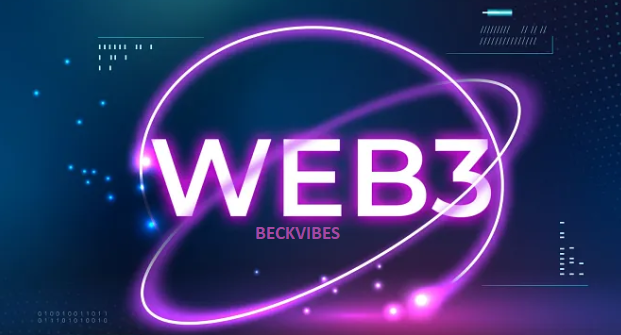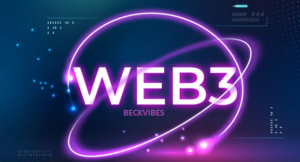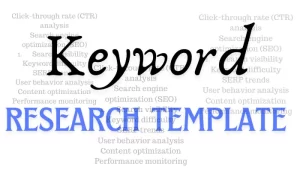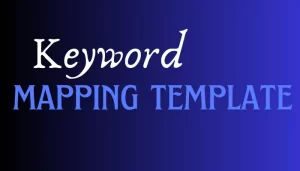
Outline of the Article of Web3 Social Media
- Introduction to Web3 Social Media Management
- Defining Web3
- Importance of Web3 in Social Media Management
- Understanding Blockchain and Cryptocurrency
- Basics of Blockchain Technology
- Role of Cryptocurrency in Web3 Social Media
- Key Skills for Web3 Social Media Managers
- Adaptability and Learning Agility
- Understanding Decentralization
- Data Privacy and Security Awareness
- Content Creation and Curation
- Utilizing NFTs in Content Strategy
- Engaging with Decentralized Communities
- Community Building and Engagement
- Leveraging DAOs for Community Management
- Strategies for Authentic Engagement
- Analytics and Metrics in Web3 Social Media
- Tracking Engagement on Decentralized Platforms
- Importance of Transparency in Reporting
- Risk Management and Crisis Communication
- Handling Security Breaches and Hacks
- Addressing Community Concerns Effectively
- Legal and Regulatory Compliance
- Navigating the Evolving Regulatory Landscape
- Ensuring Compliance with Smart Contracts
- Collaboration and Partnerships
- Building Relationships with Web3 Projects
- Exploring Cross-Platform Integration Opportunities
- Continuous Learning and Professional Development
- Staying Updated with Emerging Technologies
- Networking within the Web3 Community
- Case Studies and Best Practices
- Successful Examples of Web3 Social Media Campaigns
- Lessons Learned from Failures
- Future Trends and Predictions
- Evolution of Web3 Social Media Management
- Potential Challenges and Opportunities
- Conclusion
- FAQs
- What distinguishes Web3 social media from traditional social media?
- How can a Web3 social media manager leverage blockchain technology?
- What are some common challenges faced by Web3 social media managers?
- Is it necessary for a Web3 social media manager to have a background in blockchain technology?
- How can businesses benefit from hiring a Web3 social media manager?
Practical Skills For Web3 Social Media Manager
In the rapidly evolving landscape of social media, the emergence of Web3 has brought about a paradigm shift. Unlike traditional social media platforms, Web3 integrates blockchain technology and decentralized networks, offering users greater control over their data and interactions. As businesses and individuals navigate this new frontier, the role of a Web3 social media manager becomes increasingly vital.
Understanding Blockchain and Cryptocurrency
At the core of Web3 social media management lies a fundamental understanding of blockchain technology and cryptocurrency. Blockchain serves as the underlying infrastructure for decentralized social media platforms, ensuring transparency, security, and immutability of data. Cryptocurrencies, on the other hand, facilitate transactions and incentivize user participation within these networks.
Key Skills for Web3 Social Media Managers
Adaptability and Learning Agility – The landscape of Web3 is dynamic and constantly evolving. A proficient Web3 social media manager must possess adaptability and learning agility to keep pace with emerging trends and technologies.
Understanding Decentralization – Unlike centralized social media platforms, Web3 operates on principles of decentralization, where power is distributed among users rather than concentrated in the hands of a single entity. A deep understanding of decentralization is essential for effective community management and engagement.
Content Creation and Curation – In the realm of Web3 social media, content creation extends beyond traditional posts and tweets. Managers must explore innovative avenues such as non-fungible tokens (NFTs) to monetize and showcase digital content. Additionally, curating content that resonates with decentralized communities is crucial for fostering engagement and loyalty.
Community Building and Engagement – Central to Web3 social media management is the art of community building and engagement. Managers leverage decentralized autonomous organizations (DAOs) to empower community members and facilitate democratic decision-making. Authenticity and transparency are key principles in nurturing meaningful interactions within these communities.
Analytics and Metrics in Web3 Social Media – Traditional metrics may fall short in capturing the intricacies of engagement on decentralized platforms. Web3 social media managers utilize specialized analytics tools to track user interactions, token movements, and governance participation. Transparency in reporting ensures stakeholders have access to accurate and actionable insights.
Risk Management and Crisis Communication – In a decentralized environment, the risk of security breaches and hacks is ever-present. Web3 social media managers must develop robust risk management strategies and communicate effectively during crises to maintain trust and confidence within the community.
Legal and Regulatory Compliance – As the regulatory landscape surrounding blockchain and cryptocurrency continues to evolve, compliance becomes a critical consideration for Web3 social media managers.
Continuous Learning and Professional Development
In a rapidly evolving field, continuous learning and professional development are essential for Web3 social media managers to stay ahead of the curve. Networking within the Web3 community and attending industry events are valuable opportunities for knowledge exchange and skill enhancement.
Case Studies and Best Practices
Examining successful case studies and learning from past failures provide valuable insights for Web3 social media managers. By understanding what works and what doesn’t, managers can refine their strategies and optimize performance in an ever-changing landscape.
Future Trends and Predictions
The future of Web3 social media management holds immense potential for innovation and disruption. From the rise of decentralized identity solutions to the mainstream adoption of blockchain-based social platforms, the possibilities are endless. However, challenges such as scalability and interoperability remain hurdles to overcome.
Conclusion
As Web3 continues to reshape the social media landscape, the role of the Web3 social media manager becomes increasingly multifaceted. By mastering key skills such as adaptability, community engagement, and risk management, managers can navigate this evolving terrain with confidence and drive meaningful impact for businesses and users alike.
FAQs
- What distinguishes Web3 social media from traditional social media?
Web3 social media operates on principles of decentralization and user sovereignty, offering greater control over data and interactions compared to traditional platforms.
- How can a Web3 social media manager leverage blockchain technology?
A Web3 social media manager can leverage blockchain for transparent data management, token incentivization, and decentralized community governance.
- What are some common challenges faced by Web3 social media managers?
Common challenges include navigating regulatory uncertainty, addressing security concerns, and fostering the adoption of decentralized platforms.
- Is it necessary for a Web3 social media manager to have a background in blockchain technology?
While a background in blockchain technology can be beneficial, it is not always necessary. Adaptability and a willingness to learn are equally important for success in this field.
- How can businesses benefit from hiring a Web3 social media manager?
Businesses can benefit from hiring a Web3 social media manager by tapping into decentralized communities, exploring innovative content strategies, and staying ahead of emerging trends in the Web3 space.







